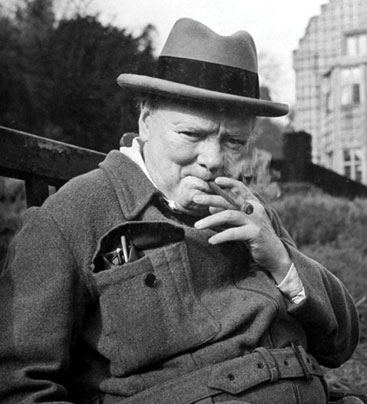CHURCHILL’S IDES OF MARCH
On March 5, 1946, at the invitation of President Harry Truman, Winston Churchill delivered an address at Westminster College, Fulton, Missouri, that introduced the world to the chilling phrase: “Iron Curtain.”
The horror of the ongoing Soviet assault in the Ukraine reinvokes its resonance.
 “From Stettin in the Baltic to Trieste in the Adriatic, an iron curtain has descended across the Continent. Behind that line lie all the capitals of the ancient states of Central and Eastern Europe . . . All these famous cities and the populations around them lie in what I must call the Soviet sphere . . . subject . . . not only to Soviet influence but to a very high and, in many cases, increasing measure of control from Moscow.”
“From Stettin in the Baltic to Trieste in the Adriatic, an iron curtain has descended across the Continent. Behind that line lie all the capitals of the ancient states of Central and Eastern Europe . . . All these famous cities and the populations around them lie in what I must call the Soviet sphere . . . subject . . . not only to Soviet influence but to a very high and, in many cases, increasing measure of control from Moscow.”
Churchill’s “Iron Curtain Speech,” which he formally titled “The Sinews of Peace,” was not, in fact, well-received. Immediate response was almost as hostile as the reaction in Britain to his early warnings about Hitler in the 1930s. Again Churchill was attacked as a warmonger, an attention seeker, an egoist — out of office and out of touch with the new postwar world. Though he had called for a “new unity in Europe” to combat the Soviet threat, and had set out his belief that a military confrontation could be avoided, the only unity that Churchill’s “Iron Curtain” speech initially engendered was international opposition.
Thankfully, President Biden’s current call for U.S.-European unity in containing Soviet aggression — which so nobly echoes Churchill — has been met with near-unanimous approval and support (except on Fox News, and Russia-1).
Ten days after his Fulton speech, Winston Churchill was at the Waldorf Astoria hotel (just down the block from us here on Park Avenue) for a dinner organized by the City of New York to honor him (you can see a copy of the evening’s elaborate program HERE). “I do not wish to withdraw or modify a single word,” Churchill insisted, after rising to speak at the Waldorf. “…I felt it was necessary for someone in an unofficial position to speak in arresting terms about the present plight of the world.”
Three years later, Churchill was back in New York for another March dinner, this one hosted on March 25, 1949 by Time Inc.’s Heny R. Luce. His controversial warnings about the Soviet Union had by now been vindicated, sadly. Still, Churchill’s view of the Russians remained grounded in an acute, almost empathetic sense of flawed humanity:
“These men in the Kremlin …how is it …that they have deliberately united the free world against them? …It is, I am sure because they feared the friendship of the West more than they do its hostility. They can’t afford to allow free and friendly intercourse between …those they control and the rest of the world. They daren’t see it develop. I believe that their motivation is self-preservation — not for Russia — but for themselves. Of course going out of office in Russia isn’t quite as easy a business as it may be here. …You lose the election, you may lose your life. It’s very high stakes they play for …and I’m sure that self-preservation for themselves lies at the root of this strange, extraordinary, unreasonable policy.”
We wish health and safety to you, and to courageous President Volodymyr Zelensky and the valiant peoples of the Ukraine.



